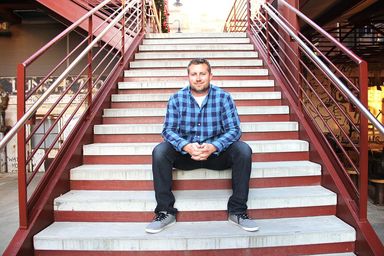 Will Hardison is the "head coach" of FanBase, which handles video production, website design, and marketing strategy for businesses. Cris Cohen: You notice a sense of fun with everything that FanBase does. A lot of small businesses are afraid of that. "We've got to look serious and professional". Were you ever nervous about going that direction? Will Hardison: No. I think because so much of what we have built on and done has been from relationship building that they get to know me first and then come check out the website. So it kind of reiterates, "Okay. That's the guy that we met. We can hear his voice coming through the content." I did make the mistake of kind of going overly fun for a while. We had a lot of sports analogies, like "Get off the bench and get in the game" and stuff like that. The people that are coming to your website, it is better to treat them as if they have no clue what you do and you have to spell it to them. Especially in the marketing world. These marketing companies and web design and video production companies, they try to be over the top with all the little things that they do. But if you're somebody who has no clue what digital marketing is, you will probably would be a little bit more comfortable if I spell out exactly that we help you use tools on the internet to get new customers. Cris: Or the other way where they go overly on the business speak. "Let me help you amortize your corporate endeavors." Will: Exactly. Also, we have some contractors we work with as needed. Initially I loaded up our "About" page with all of them. That actually hurt us. People didn't contact us because they thought we were going to be too expensive because we were so "big." You look at that and you go, "I don't want to pay for ten people to help me. I just need something basic." Cris: What have been the advantages of being yourselves and just saying "Look, this is who we are"? Will: People tell me that we're very approachable, very likable. And that's one thing that I tell people when I do keynote talks. Because if you're not likable, you can forget it. People have to like you to do business with you. If you've got an issue or if there's something that we need to resolve, I'm not gonna make a joke about it. I'm gonna go get it done. I'll be serious when I need to be serious. But 90 percent of the time, we like to have fun with our work. I think that's really helped too because we're not pretending to be somebody that we're not. Cris: So many businesses, when it comes to their social media, they forget that there are actual humans that they're speaking to. Will: Yeah. You're not a robot talking to another robot. You've got to have personality behind your brand. People need to see the authenticity of your brand. The perception that you build, online or at networking events, that's what people will think you are. If you are perceived as uptight and Mr. Always Going To Be Be Serious, that's what people are going think you are. I wish people would let go a little bit and trust us a little bit more. I'm working with a gentleman now -- and he would tell you this, too, and that's why I'm telling this story -- he has the hardest time letting go. And I get it. It's his company. It's his brand. He's worked on it for a while. But he's almost 60 years old and he's trying to pitch his product to real estate agents who in their 20s and 30s. I said "You can't go after these people with the corporate stuff. You need to be hip and young and speak their language." We even got a hundred plus responses to a survey that proved this is what they want. They don't want you to tell them about your comparative analysis. They want you to tell them that they can sell more homes as a real estate agent using your system. "Great. I can sell more homes. I can make more money". That's all they want you to tell them. He keeps going back to all that lingo that you mentioned earlier, all of that overly corporate messaging like "Use our tool to do comparative marketing." I said, "No. Just say, 'Sell more homes, make more money'". And it's great when clients trust us. Some do. We shot a video for Heather Macy from East Carolina University and she said, "You tell me what you need it to be. I'm willing to do whatever. You're the boss. You know what these people want. Take it and run with it." Cris: Is there anything that you wish clients would ask you? Will: I wish that people would think or ask about the bigger picture, more than just "I need a video" or "I need a website." I really wish people would think in terms of "How do I build this larger brand", "How does all this work together", and "How do I know what's working and what's not working". Cris: Too many people don't acknowledge what they don't know. Will: It's like if I hired an interior designer to redo my house and end up telling her or him everything that I want and picking out things myself. Why the heck did I hire an interior designer? If I hired an interior designer, I'm going to say, "Here are a few photos of what I like. Go for it. Make my place look awesome." "I've had multiple occasions where it's not just the patient that has this aha moment. It's the third party that's sitting behind them asking them a question. Even if it's, "Where are we going to go eat?" and the patient says, "Well, I don't know. You pick."
"It's not even connected with the patient in their head that they just heard somebody talking behind them. But then the third party (their daughter or their husband) their jaw just drops. "Oh my God. They can hear me again." That is a very cool thing to witness." - Dr. Fisher of clients Now Hear This Audiology and Hearing Solutions "I remember having a conversation with my dad and saying, 'Dad, I'm running a small business.' And whether you are working in music, tech, or medicine, that is the mindset you need to have in today's world." - client Rich Redmond, drummer for Jason Aldean, speaker, actor, entrepreneur
Sam Shriver, Senior Vice President at The Center for Leadership Studies: Anytime you take a look at leadership, the only time it comes into play is when it's under this umbrella of change. Leadership is a mechanism that allows change to happen.
If you're talking about keeping things the way they are, that's more of a management thing. We know where we're going, we know what it looks like. My job is to make sure that you execute according to plan. Warren Bennis said managers are the kind of people that say, "Are we doing things right?" Leaders are the kind of people that are saying, "Are we doing the right things?" We're going somewhere. We're on this expedition, this journey. Not only have we never been there before, nobody has. We don't know, exactly, what it's going to look like, but come follow me anyway. Cris: Is there anything that you wish people would ask you but they don't? Will Hardison of FanBase: I wish that people would think or ask about the bigger picture, bigger than just "I need a video or I need a website." I really wish people would think in terms of "How do I build this larger brand and how does all this kind of work together?" and "How do I know what's working and what's not working?" I think a lot of people just go, "This is what I think's going to work." We live in an age where we have enough tools that we can figure out if it's working or not working. Say what you want for the end goal. Odds are the expert in the field is going to suggest something you probably never thought of. (Hire Cris to develop your online content. [email protected])
Cris: There's not a lot of patience nowadays. Everyone expects the overnight success, instant gratification. How do you explain patience and process in the midst of that? Sam Shriver, Senior Vice President at The Center for Leadership Studies: I think leaders in all eras have had challenges of different kinds. In years past it was waiting on the world to change. Change took a long time, and it was difficult to see results. Now, you're right, it's almost like there's too much information, and there's too much change, and everybody wants everything right now. A challenge that leaders face is spending time, up front, making sure we know where we're going, and we know what we're doing. And really setting expectations around the idea that this is going to take some time. If you're throwing a steak on the grill, that's different than if you're slow cooking a brisket. It's ready when it's ready. Hang in there. We want to make sure that it's good, not that it's on your plate at a predetermined time. I think it is absolutely a leadership challenge to manage a lot of that instant, right now, response mentality. (Hire Cris to develop your online content. [email protected])
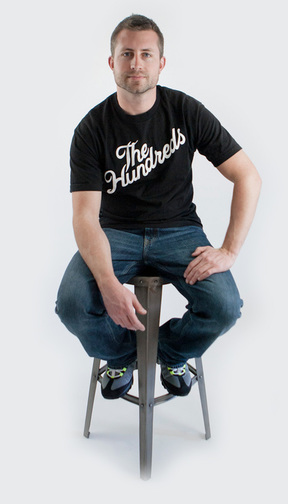 Will Hardison Will Hardison Cris: Okay. What have been the advantages of being yourselves and just saying "Look, this is who we are."? Will Hardison of Fanbase: What other people tell me is that we're very approachable, very likable. That's one thing that I tell people when I go do keynote talks: If you're not likable, you can forget it. People have to like you to do business with you. And I do tell clients, "Hey, we're going be serious, but let's also have some fun." If you've got an issue or if there's something that we need to resolve, I'm not going to make a joke about it. I'm going to go get it done. I'll be serious when I need to be serious. But 90 percent of the time we like to have fun with our work. I think that's really helped too because we're not pretending to be somebody that we're not. Some people have actually said, "You're not going to get the big clients by being that way." And I responded, "Maybe, but maybe not." We work with Research Triangle Park and we joke and have fun with them all the time. They're our biggest client. At the core of it, they want to be people, too. Every single time I talk to clients and get to know them more on a friend level, they all say the same thing, "We hate working with stuffy people." Cris: From what I've read about your company and the training you do, leadership isn't always on a grand scale. It is not just a company's CEO who demonstrates leadership. It can be someone within a company, or within a group within a company. Sam Shriver, Senior Vice President at The Center for Leadership Studies: That's a big piece of what we do. We define leadership as an attempt to influence. First off, leadership is multi-directional. It is not just top down. Leadership includes that, but it also includes peer influence and upward influence. It's pervasive. It's what you do at work, it's what you do at home, it's what you do in your social setting. Anytime you're attempting to influence the behavior of another person, you're attempting to lead. That's the ballpark that we play in. I think, at least in our circles, that we're really changing the paradigm around which leadership is viewed. You want people coming into your company, saying, "Here's how this could be better. This is how this works. This is what it looks like." In many cases, creativity and really new, fresh ideas, that's where they come from. (Hire Cris to develop your online content. [email protected])
"I will say to customers, 'We can do fabulous designs for you. But the next guy will say that as well. But one thing I will give you a guarantee on is that our project management and cost control is second to none. And I've got people who will tell you that, references who will tell you that.' And in an industry that is notorious for delivering late and over-budget, that's got to be worth something. We don't deliver late. We don't deliver over-budget." - Ken Moore, Anfield Inc.
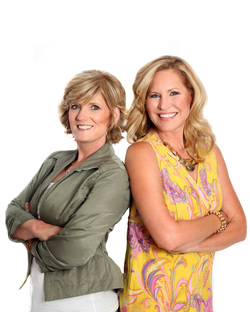 "Reporters often ask Carrie and I if we are friends, which I find interesting because you wouldn't ask two men that." - Marcia Cubitt of clients Essential Bodywear |
AuthorCris Cohen Archives
March 2021
Categories |

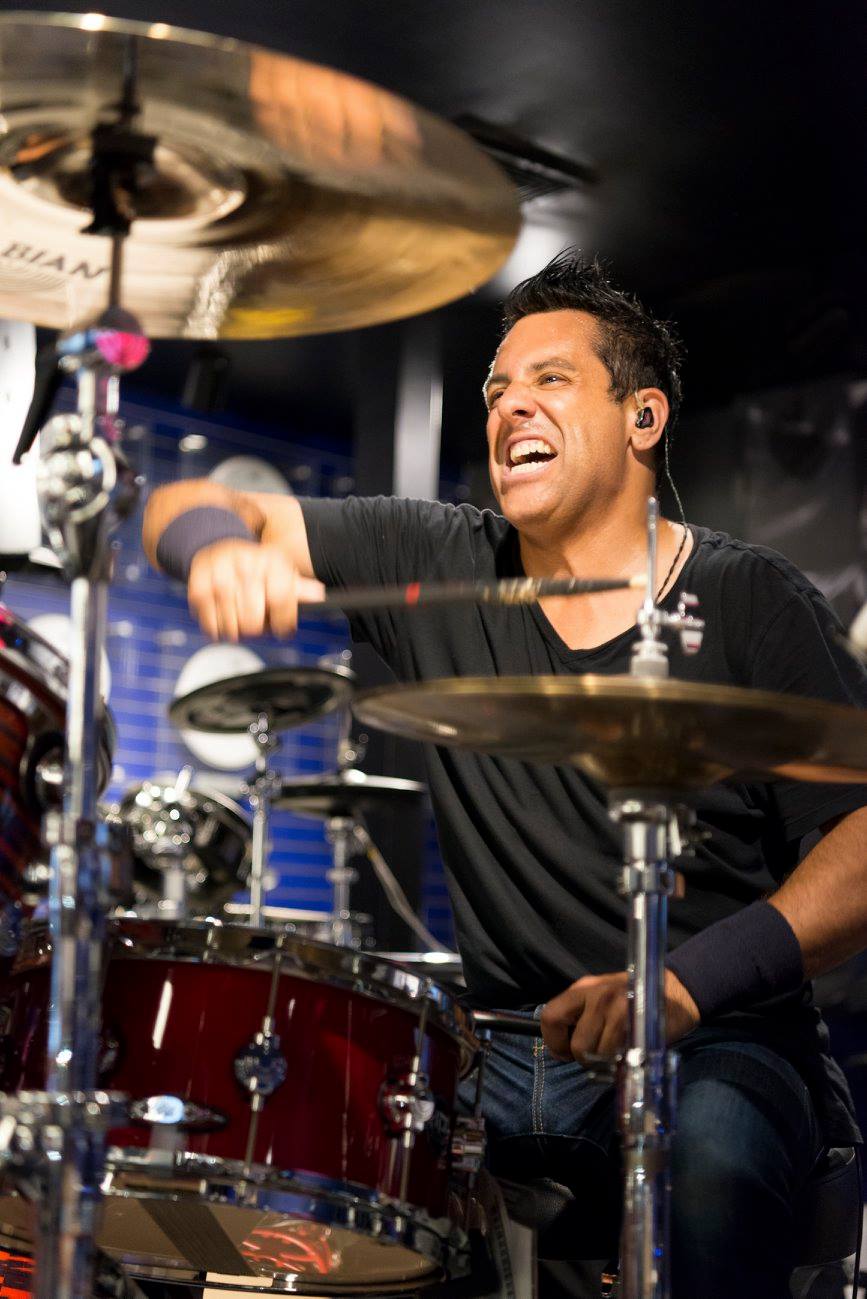
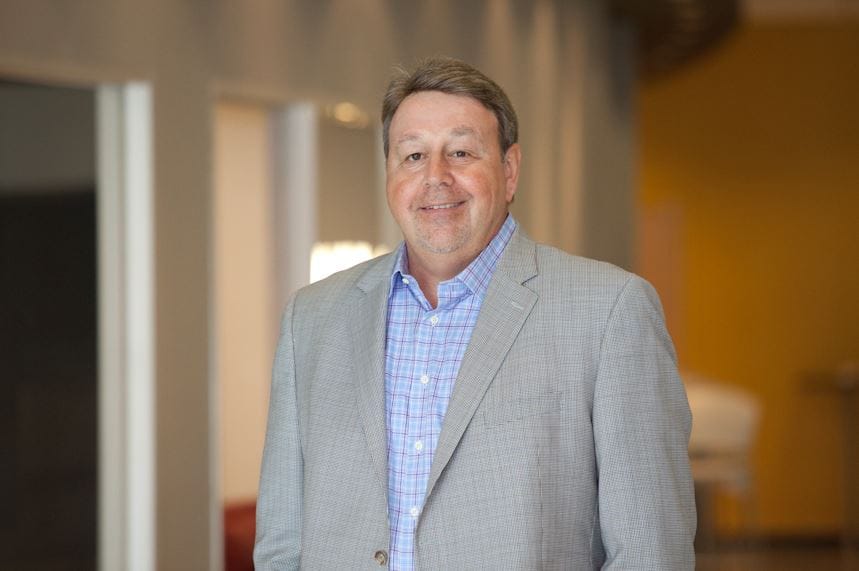
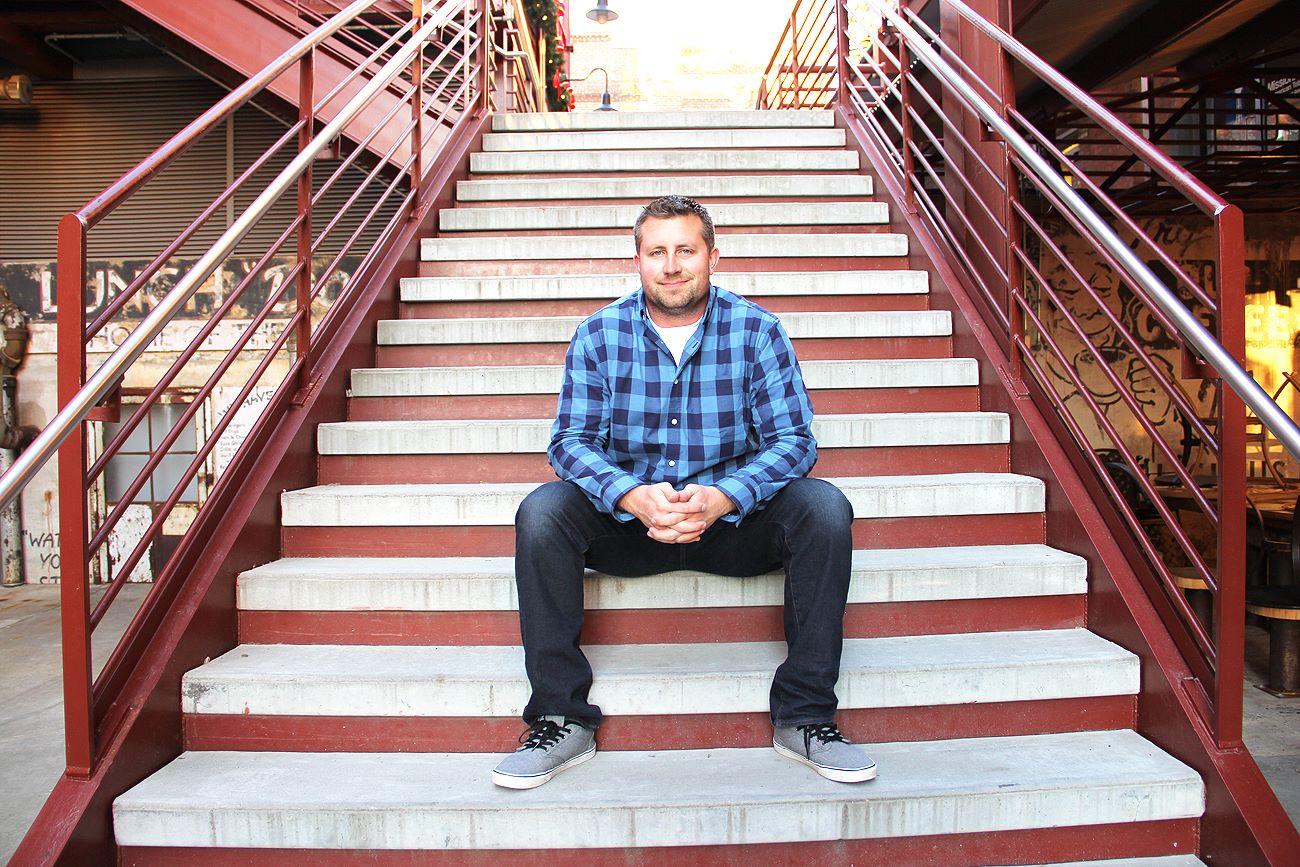
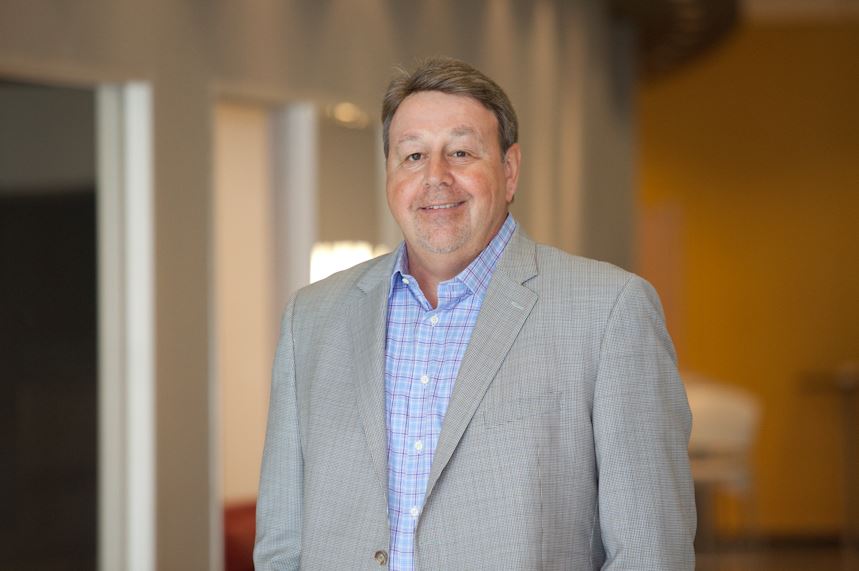
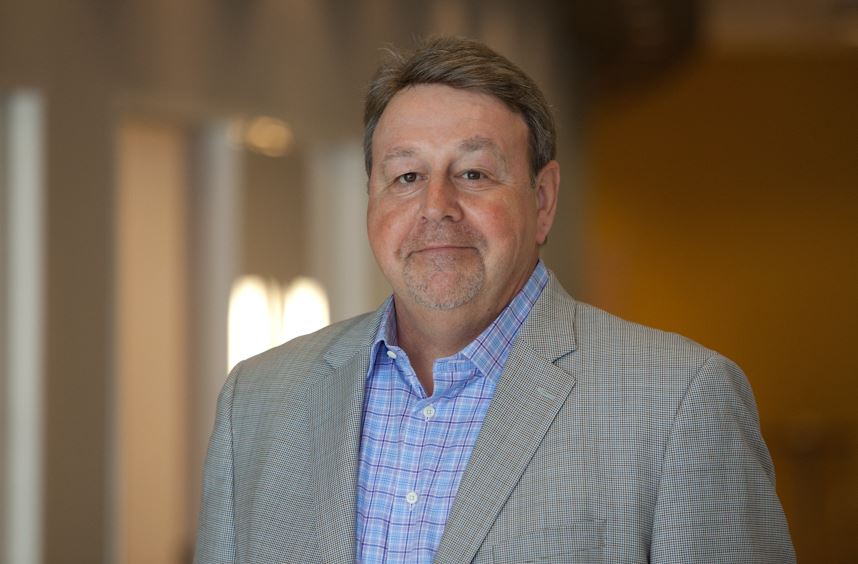
 RSS Feed
RSS Feed